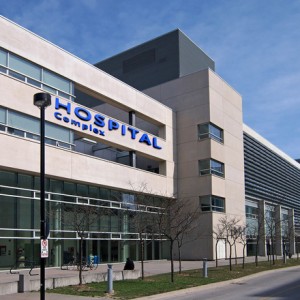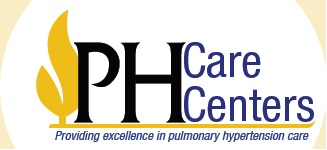 Eleven new health care centers have received accreditation from the Pulmonary Hypertension Association (PHA) to become recognized Pulmonary Hypertension Care Centers (PHCC). With these additions, there are now 17 PHCCs in the U.S., which are centers designed to improve the quality of care and clinical outcomes in patients who suffer from pulmonary hypertension (PH), as announced by the association in a press release.
Eleven new health care centers have received accreditation from the Pulmonary Hypertension Association (PHA) to become recognized Pulmonary Hypertension Care Centers (PHCC). With these additions, there are now 17 PHCCs in the U.S., which are centers designed to improve the quality of care and clinical outcomes in patients who suffer from pulmonary hypertension (PH), as announced by the association in a press release.
The PHA grants either the Centers of Comprehensive Care (CCC) or the Regional Clinical Programs (RCP) accreditations to these centers. The Association is particularly committed to reducing the burdens on pulmonary arterial hypertension (PAH) patients, which is a rare and debilitating lung condition that causes malfunction of the heart and in some cases heart failure. If not treated, the survival is only about 2.8 years after diagnosis.
“We continue to be impressed by the programs applying for accreditation,” stated the member of the PHCC Oversight Committee, Murali Chakinala, from the Washington University in St. Louis School of Medicine. “Patients entering these centers can feel confident that the PHCCs have been vetted by a rigorous process that includes a detailed application and a comprehensive site visit with ultimate adjudication by a Committee of more than 20 health professionals with vast experience in caring for PH patients.”
Even though progress has been made, PAH still takes 1.1 years on average to be diagnosed, during which patients normally consult several physicians to understand what disease they suffer from. Therefore, the PHA has been committed to improving both diagnosis and treatment through the designation of PHCCs, which require the fulfilling of certain parameters examined by the PHA’s Scientific Leadership Council and the PHCC Oversight Committee to receive accreditation.
PHCC accreditation is granted to PH programs that reveal commitment to the diagnosis of the disease, as well as the ability to manage it properly and comprehensively, according to the PHA Scientific Leadership Council criteria. The evaluation is conducted by 28 global leaders in the field of pulmonary hypertension, while the criteria have been established in collaboration with several PH stakeholders such as physicians, allied health care professionals, patients and PHA leadership.
[adrotate group=”4″]
The new PHCCs are:
- University of Texas Southwestern Pulmonary Hypertension Program, in Dallas, Texas,
- Arizona Pulmonary Specialists, LTD – St. Joseph’s Hospital and Medical Center, in Phoenix, Arizona,
- Adult Pulmonary Hypertension Comprehensive Care Center at Columbia University Medical Center – New York Presbyterian Hospital, in New York, N.Y.,
- Pediatric Pulmonary Hypertension Comprehensive Care Center at Columbia University Medical Center – New York Presbyterian Hospital, in New York, N.Y.,
- Mayo Clinic Pulmonary Hypertension Program, in Rochester, Minnesota,
- Rhode Island Hospital Pulmonary Hypertension Center, Rhode Island Hospital, Brown University School of Medicine, in Providence, R.I.;
- Pulmonary Hypertension Program – University of Colorado Denver, Anschutz Medical Campus School of Medicine and University of Colorado Hospital, in Denver, Colorado,
- University of Michigan Pulmonary Hypertension Program, in Ann Arbor, Michigan,
- Virginia Commonwealth University Health System, in Richmond, Virginia,
- Washington University & Barnes-Jewish Hospital Pulmonary Hypertension Program, in St. Louis, Missouri, and
- Weill Cornell Medical Center – New York Presbyterian Hospital, New York, N.Y.
The PHA expects the 17 accredited PH Care Centers to contribute to the development of a new PH patient registry, meant to follow diagnosis and therapeutic patterns nationally in order to improve health care offerings for PH patients. “The PH patient registry will provide important data on the care and outcomes of patients with pulmonary hypertension across the country,” said Steven Kawut of the Perelman School of Medicine at the University of Pennsylvania.
“We can then begin to understand best practices in the treatment of PH and continue to improve the quality of life and survival of individuals with this disease,” Kawut added, as the PHA also believes that connecting PHCCs with a national network may expand the collaboration in the PH community, with clinical, quality improvement and investigative partnerships.

